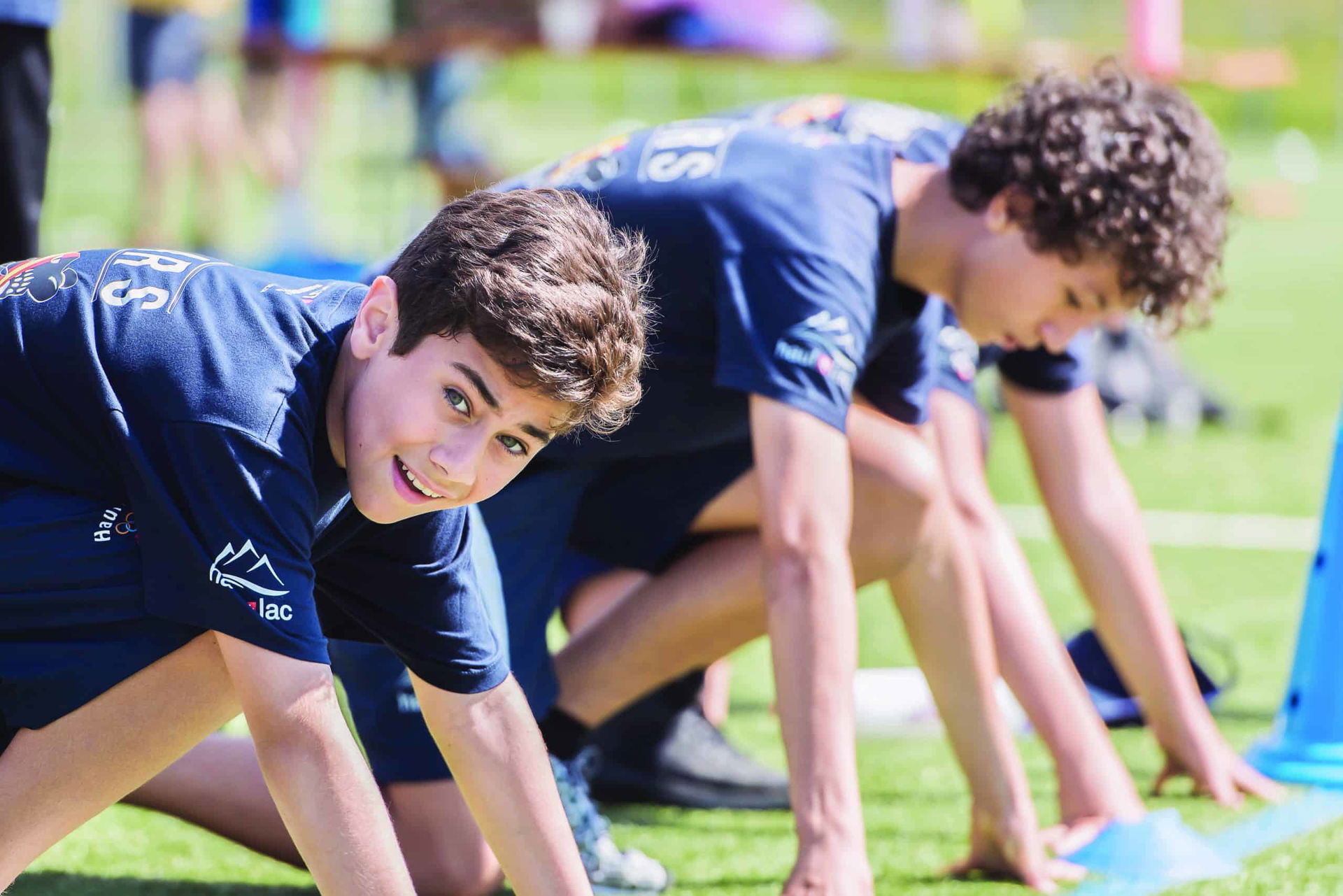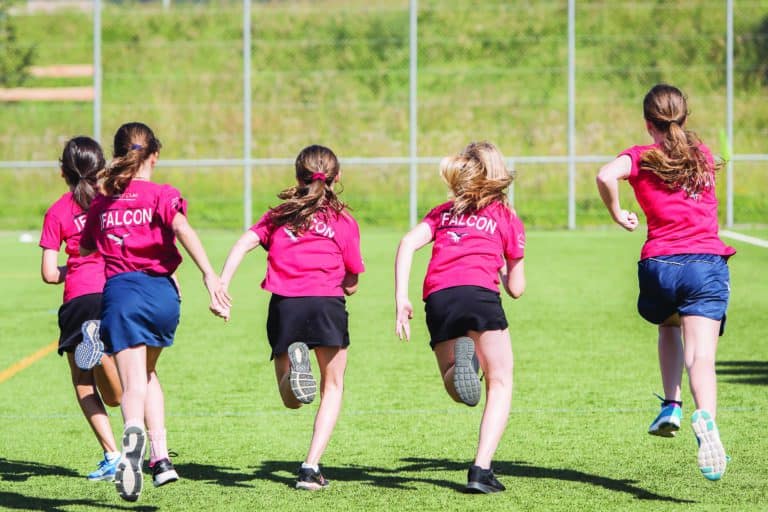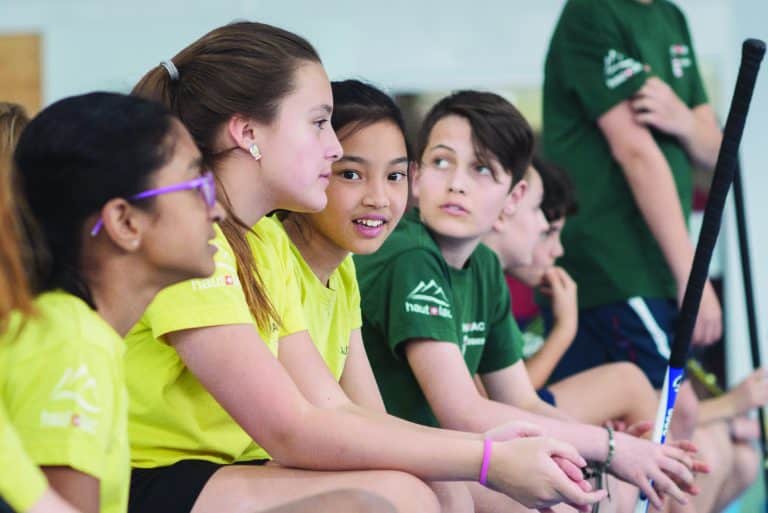Should students be forced to sacrifice their academic grades to pursue a career in elite sports?

Pursuing elite sports at school is a brave choice for any teen. Committing 100 percent to a career choice where there is no guarantee of making it, and where a social life and academic results may have to be put on the backburner, could be anxiety inducing for even the most committed student-athlete.
And what happens if it doesn’t work out? If choosing hours training over hours revising turns out to be the wrong decision? How can schools support their students from the beginning to ensure that athletic ability is about opening doors, not making sacrifices with repercussions long after school graduation?
The World Academy of Sport (WAoS) is behind a new programme which allows students to extend their IB studies. As a result, they can excel in both academics and sports, at their own pace. We talk to Anne Louise Williams from WAoS about the programme, and hear from Anne-Marie Harwood at Haut-Lac Bilingual International School about how they are embracing this new option for their budding athletes.

Tell us a bit about how the WAoS works with schools
Anne Louise Williams, WAoS. The world is an unpredictable place. Injuries can occur. They could miss out on the national team, or other world events get in the way.
That’s why WAoS developed the concept of the Athlete Friendly Education Centre to provide flexible learning pathways to continue to higher education and develop a professional future beyond sports alone.
This includes a strong focus on welfare. We advise schools to dedicate a point person to each athlete to hear any concerns. Then we will introduce our extended IB Diploma Programme.
Our dual career approach gives athletes a ‘plan B’ for life after competitive sport. It also gives them some headspace away from their training or away from schoolwork, which we’ve heard from the athletes themselves, gives them a performance boost.

How do you think this form of flexible learning will continue to evolve?
Anne Louise Williams, WAoS. Our long-term vision is that by 2028, our work in schools will grow from assisting 1,200 current student-athletes to a network which supports 30,000 student-athletes in schools around the world with the tools they need for flexible learning.
We continue to innovate to shape not only the next generation of sports stars, but also the global sports industry. Our recently-announced partnership with Federation University to offer an IB career-related Programme in International Sports Management will allow students to turn their passion for sports into a profession. This programme will be available to schools from January 2021.
We’re also in the process of launching an athlete certificate which is designed for 16-year-old student-athletes to help them prepare for life as a high-performance athlete after school. This is an online course with associated teacher resources. We are aiming for this to fulfil some requirements of the IB DP and CP core coursework components in the near future.
Haut-Lac International Bilingual School was the first school in Switzerland to be accredited as an Athlete Friendly Education Centre by the WAoS. How will this improve life practically for student-athletes?
Anne-Marie Harwood, Managing Director Academic, Haut-Lac. We were accredited by the WAoS in the 2018-19 academic school year, so can now offer our students an extended IB programme to help them complete both academic study and sports training to a high level. There are more than 50 student-athletes coming up through the primary and MYP at Haut-Lac. Due to this influx, we wanted to be ready with a clear blueprint to support them.
Practically speaking, we treat each student as an individual and create a timetable that best suits them. Olympic hopefuls, for example, may even need a further-extended 4 year programme, and we can do that for them. Generally however, students do 3 subjects in the first year, finish 3 subjects and start 3 news ones in the second. Then finally, they complete those 3 subjects in the final year. They can also choose which subjects they do during which year, so they can get lengthy things like the Extended Essay done early. This can alleviate some of the stress of having this hanging over their heads for the entirety of their studies.
What are the benefits of this program for your students, beyond academic success?
Anne-Marie. In the 21st century, education is no longer just about performance in the classroom, but about learning in general and I believe the life skills the students gain through their training are just as important to their future as having strong academic qualifications. The extra year gives students the chance to excel in both their academics and their sport without having to let one slip.
Do student-athletes get left behind socially during these formative years?
Anne-Marie. The programme allows students to maintain a better social life at school. Even in spite of the fact that they are away regularly for their sport.
To further support this, we allow the students doing the longer course to graduate at the end of the second year with their peer group so that they don’t feel like they have missed out on any milestones of school or teenage life.
Going forward, we are looking to build a strong student-athlete section in our school to give student-athletes a better sense of belonging, knowing that they have a group of fellow athletes who understand their joys and trials. We hope that this will make the life of a student-athlete more sociable and approachable, giving them a wider support network upon which they can rely.
What qualities do you hope to foster in your students by promoting participation in sports at an elite level?
Anne-Marie. We would like to foster hope and self-belief in our young athletes. If they think that we believe in them, then they will believe in themselves too.
We believe that regardless of their future career, our student-athletes will be level-headed, confident, determined and emotionally balanced. What they choose to do with the qualities they developed over their sporting careers will be up to them. However, hopefully school will give them a good idea of where they can channel them best.
How do you work with parents on this programme?
We have always had a very flexible relationship with the parents of our young athletes. Parents are invaluable in helping us to liaise with the students’ sports club and their coaches. Parents bring us the calendar of the year and the student’s training programme. Then we create their school timetable from there. We are planning to formalise this relationship this year. This will mean that we have a solid 3-way relationship between home, family and club to support the person.
How do you ensure this particular focus on sports benefits the whole school, not just those enrolled in the programme?
It’s known that sport helps to maintain both physical and mental health. The latter is a big issue that we see increasing amongst young people nowadays. As we promote sport at school, we also see it increases school spirit. It helps students to form bonds. It can give them new passions, places and people with whom they feel comfortable and valued.
More from International School Parent
Find more articles like this here: www.internationalschoolparent.com/articles/
Want to write for us? If so, you can submit an article for consideration here: www.internationalschoolparent.submittable.com
